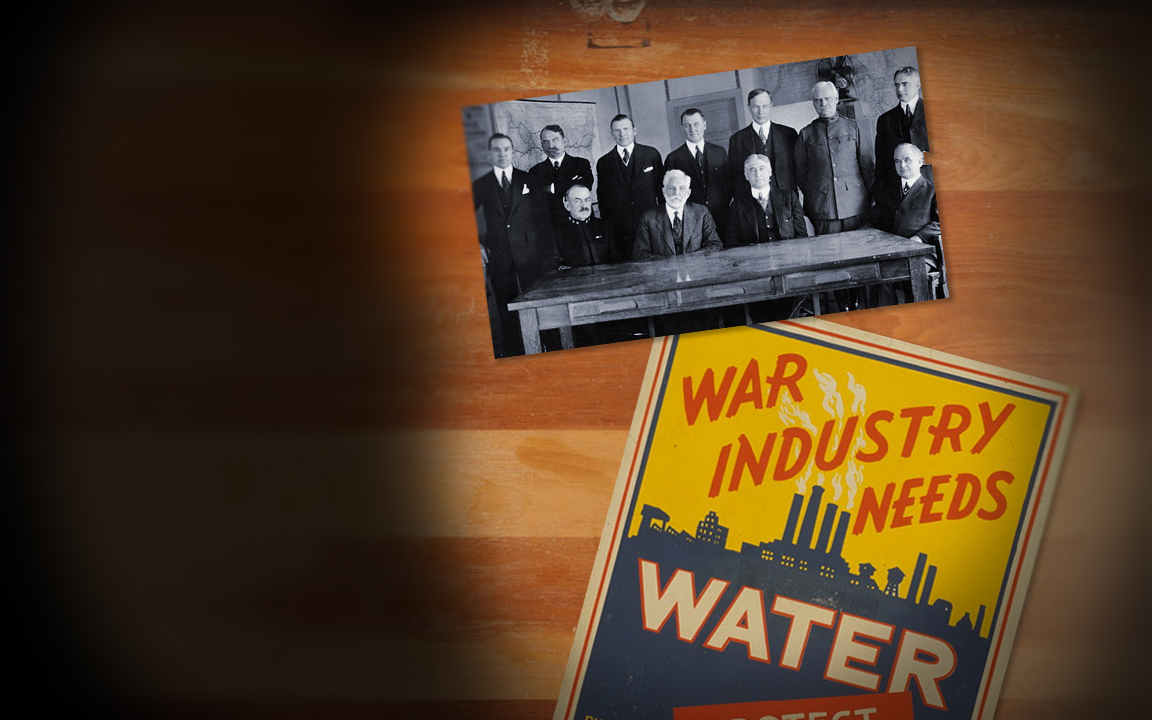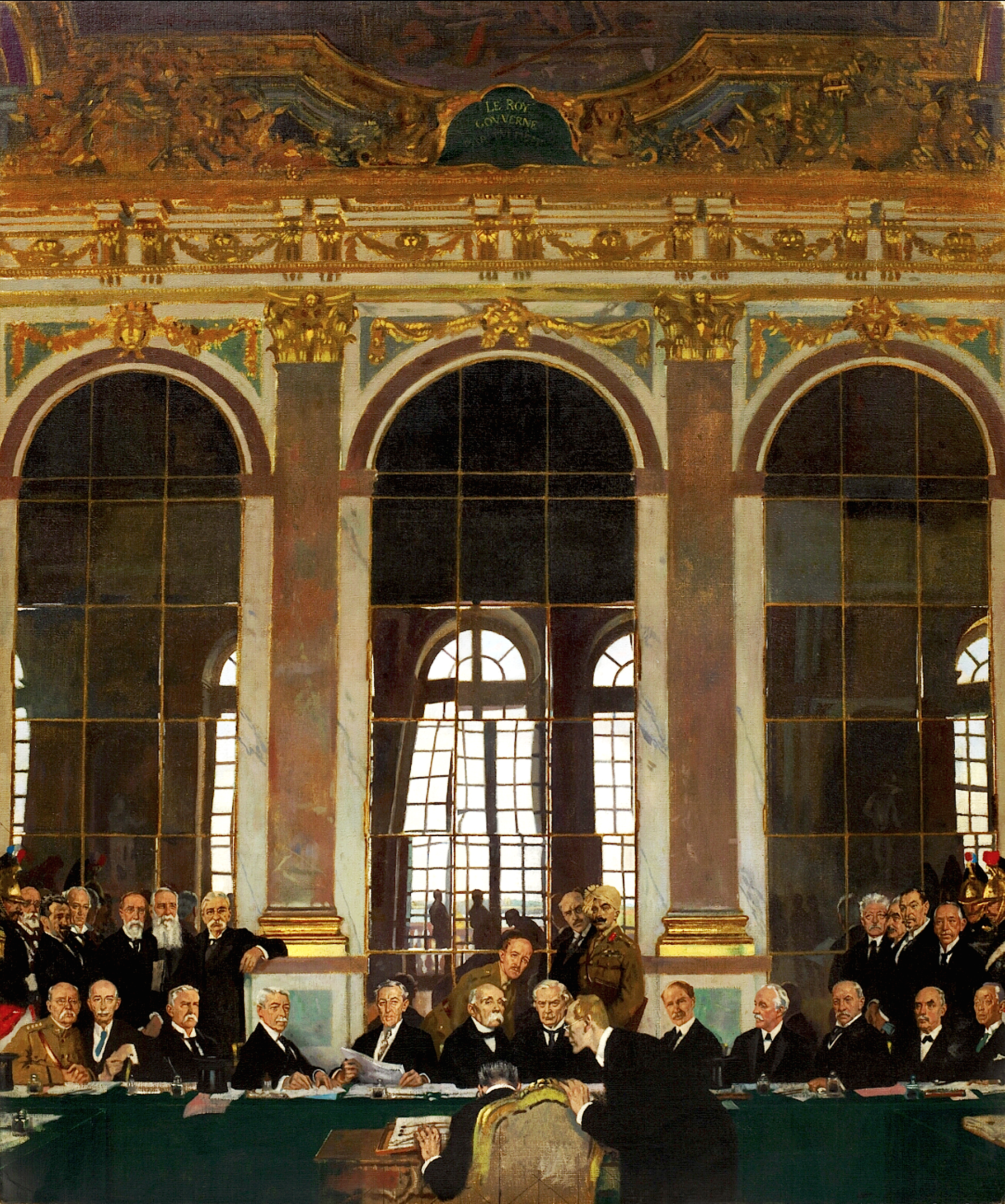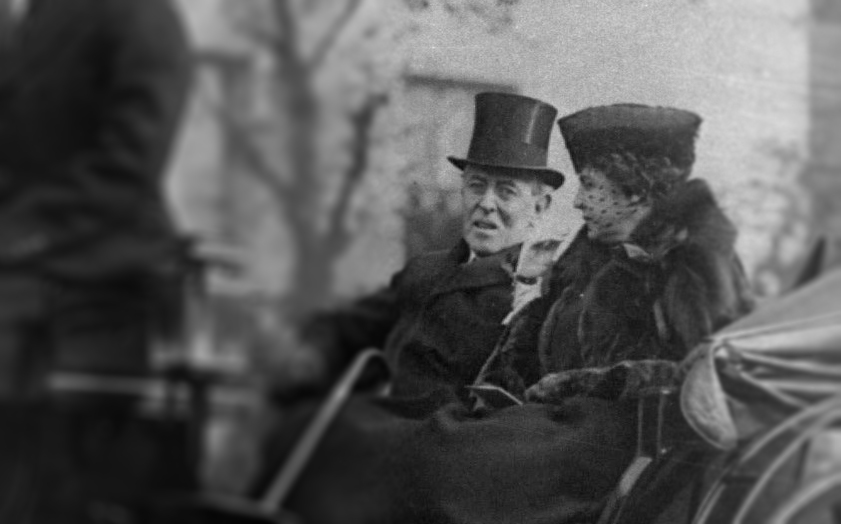In 1912 Bernard Baruch broke with his fellow Republican Wall Streeters. He gave generously to Woodrow Wilson’s campaign, supporting the man who would become the new century’s first Democratic president.
Baruch admired Wilson:
“From the moment I clasped Wilson’s hand, I was taken with him...We talked of the large issues of the day...Although I did not then realize it, I had met a man I would soon regard as one of the greatest in the world.”
Bernard M. Baruch, The Public Years
In 1914, with war brewing in Europe, Baruch began to take an interest in the industrial preparedness of the U.S.
He joined the National Security League, a group of businessmen formed to study the state of industry with regard to possible U.S. involvement in war.
In order to avoid the appearance of a conflict of interest, Baruch also divested himself of any stocks related to munitions.

In April 1917 the U.S. declared war against the German Empire.
A month later Woodrow Wilson created the War Industries Board to assure the availability of raw materials and resources for war production. He named Bernard Baruch interim chairman.
Railroad men Daniel Willard and Robert Lovett opposed Baruch's appointment to the WIB, objecting to his ties to Wall Street. Lovett expressed anti-Semitic feelings.
But when the third chairman of the WIB resigned, Wilson finally put Baruch in charge. By Armistice Day one quarter of industrial manufacturing had been converted to military use, and Bernard Baruch was a household name.
When the time came to work on a peace treaty, Wilson wanted Baruch there, and Baruch was eager to be involved with the Paris Peace Conference.
After six months of negotiation, heads of state met on June 28, 1919 in the Hall of Mirrors of the Palace of Versailles to sign the treaty that set the terms of peace and established the League of Nations.

The Versailles Treaty failed in the Senate by seven votes.
Exhausted by the effort to gain support for the treaty, Woodrow Wilson suffered a stroke and nearly died. His second wife, Edith Bolling Galt, cared for him, and he lived until 1924.
After her husband's death, Edith Wilson remained a close friend of the Baruch family, and frequently traveled with Belle Baruch.

To return to the trail click NEXT STOP
To return to the Hobcaw House Son's Room click
